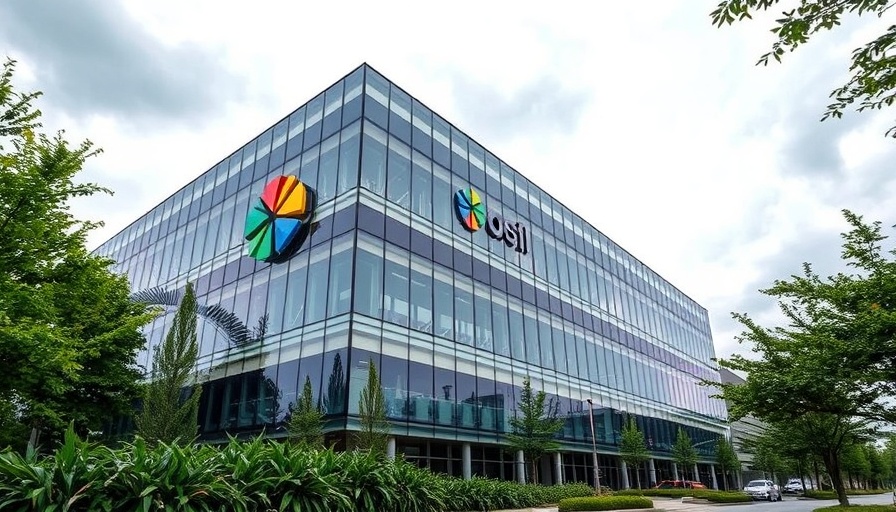
The Lawsuit That Could Reshape AI’s Role in Education
In a groundbreaking move, educational company Chegg has filed a lawsuit against tech giant Google, accusing it of undermining the integrity of digital information through its AI-driven summary tool. As AI innovations continue to transform how we access information, Chegg paints a grim picture of a digital landscape where low-quality summaries reign supreme, potentially leading to a "hollowed-out information ecosystem of little use and unworthy of trust".
The Impact of Google's AI Overviews on Chegg
Chegg’s lawsuit, filed in the U.S. District Court for the District of Columbia, highlights serious concerns about content ownership and fair competition. According to Chegg CEO Nathan Schultz, their platform has experienced a drastic decline in traffic and revenue, directly attributed to Google's AI Overviews—an AI tool that summarizes search results by scraping information from various online sources without requiring users to visit those sites.
These AI Overviews are not just a challenge for Chegg; they represent a larger issue for the entire digital publishing industry. Schultz argues that Google's preferential treatment of its AI summaries disincentivizes original content creation, as users are less likely to click through to educational resources like Chegg when they can receive seemingly adequate information directly in their search results.
The Broader Implications for the Digital Economy
This lawsuit reflects a growing frustration among content creators who feel increasingly trapped within Google’s expansive digital ecosystem, often referred to as a "walled garden." The legal battle demonstrates how AI technologies can inadvertently marginalize smaller platforms and contribute to a skewed online marketplace. Chegg seeks compensatory damages and an injunction against Google's alleged monopolistic practices, which have their roots in forced reciprocity in content supply.
The stakes are high, as Chegg’s revenue stream relies heavily on engagement and traffic to its educational platform. Chegg’s significant declines—reportedly a staggering 49 percent drop in non-subscriber traffic—highlights the tangible financial ramifications of Google's automated tools.
Comparative Perspectives
Chegg is not alone in its sentiments against Google's approach to AI. Publishers nationwide are echoing similar concerns. They argue that while AI Overviews may make searching more convenient for users, they do so at the cost of verifiable, high-quality content. Other companies have reported observable drops in their website traffic coinciding with the rollout of Google’s AI summary feature, such as news outlets that rely on clicks and engagement from readers to sustain their operations.
The intersection of original content creation and Google’s AI system poses a daunting challenge. As the digital publishing landscape evolves rapidly, it's important to consider the delicate balance between convenience and content quality—particularly in educational contexts where accuracy is paramount.
Future Predictions: What Lies Ahead
As AI continues to develop, the questions regarding its implications for content creation and information dissemination will only intensify. If Google’s current trajectory continues without adjustments, we may witness further erosion of trust in information sources and a shift towards homogenized, low-quality content dominating search outcomes.
It’s also essential to keep an eye on the broader regulatory environment surrounding tech giants like Google. Given the federal court’s ruling on Google's monopoly in the past year, there is potential for more robust regulations aimed at ensuring fair competition and protecting the interests of smaller companies and content creators.
Actionable Insights for Readers
As stakeholders in the educational and digital content space, readers can advocate for transparency and accountability in AI initiatives. Engaging in conversations about the ethical implications of AI, sharing concerns with policymakers, and supporting platforms that prioritize quality content can help shape a more equitable digital landscape.
Moreover, as we navigate this evolving era of information technology, educational consumers should remain discerning. The complexity of these issues necessitates critical thinking about where content is sourced from and the reliability of information encountered online.
In light of these developments, it’s important to continuously monitor how AI tools are designed and utilized in the digital economy. This case by Chegg serves as a reminder of the intricate relationship between technology, media, and user trust, and why fostering an environment where quality content thrives should remain a priority.
 Add Row
Add Row  Add
Add 


Write A Comment